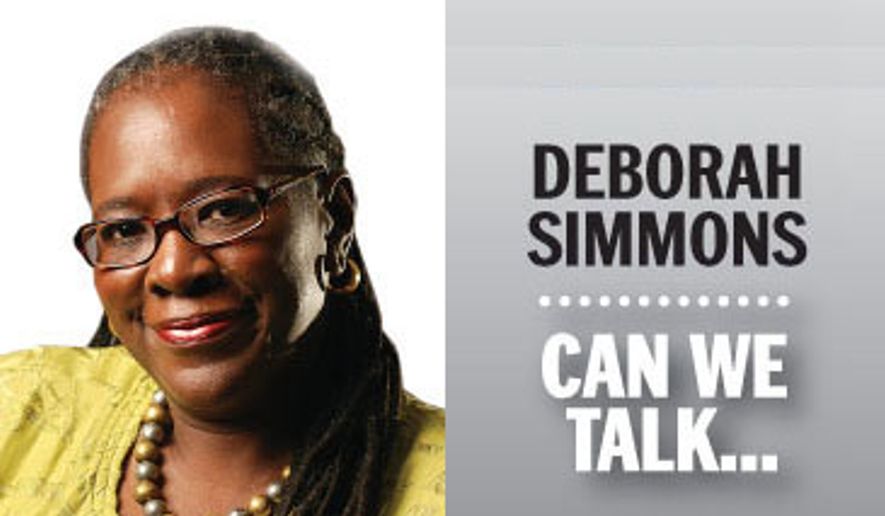ANALYSIS/OPINION:
This is National School Choice Week, and it is certainly appropriate to visit an issue that soon will be doing more than marking time on the 2016 presidential campaign trail.
For Chris Christie of New Jersey, Bobby Jindal of Louisiana, Jeb Bush of Florida, Scott Walker of Wisconsin and Rick Perry of Texas, as well as others with gubernatorial experience, it will be put up or shut up time. At least when it comes to school reform via tax credits.
Dozens of states have instituted some manner of school choice. Many families merely followed the No Child Left Behind Act, which allowed parents to opt out of horrible public schools. Some surveyed the competition and chose public charter schools, or private or religious schools if their wallets could bare it. Many simply loaded their minivans and moved. Others in school-choice states such as Alabama, Florida, Louisiana and New Hampshire had longer hauls, including legal challenges.
In fact, parents and school-choice advocates in Alabama are scheduled to march Wednesday morning to the state Capitol on behalf of the Alabama Accountability Act, which allows students in a failing school district to transfer elsewhere with a state income tax credit in their parents’ hands.
Parents around the country are knocking down doors in states that have implemented such tax credits — options that no longer trap a child in a ZIP code where schools are underperforming or failing by various measuring sticks. In many instances, especially among low-income families, tax credits coupled with other school-choice variables allow families the freedom to put their children in better school houses and better school districts.
The Alabama choice law took effect in 2013, the same year the Virginia Education Improvement Scholarship Tax Credit (EISTC) began.
The Virginia program is similar to other school-choice programs, where much of the contention hinges on something called the “Blaine Amendment,” which essentially prohibits states from funding church-affliated schools.
Chris Braunlich, vice president of the Thomas Jefferson Institute for Public Policy and president of the Virginia State Board of Education, explains why Virginia does not run afoul of state constitutional issues:
“Donors to state-approved scholarship foundations receive a 65 percent state tax credit for their donation, on top of their federal and state tax deduction. Those foundations, in turn, use at least 90 percent of their donations to provide scholarships for low- and moderate-income children. Because funds neither come from the state nor even pass through state coffers, legal experts and years of case history make clear there’s no entanglement with Virginia’s Blaine Amendment.
“In fact, the EISTC is a good deal for state taxpayers, as well. With an average $2,400 scholarship for each child, the state saves the difference between the cost of the tax credit for that scholarship and the average $4,290 state share of funding that will not be spent on that child’s public school education.”
Now those are some dollar figures the aforementioned Republicans and their Democratic counterparts can take to bank — and the polling booth, too.
And courtesy of Mr. Braunlich, here are some anecdotes, to boot:
• Nearly 1,000 scholarship students attend more than 60 Virginia schools.
• Four siblings lost their parents in a tragedy, and their 22-year-old brother is now the legal guardian even as he works full-time and attends community college at night. Those children desperately needed the “small community” family-oriented education offered by their local church-affiliated school, and now they’re able to get it.
• A Hispanic first-grader in Northern Virginia who felt bullied now feels more secure in her new school environment.
• A military mom whose daughter was beaten by another student twice her size wanted — and deserved — to know that her child was going to be in a safe environment that could only come from a small school.
See? These kids have the same troubles that worry families across the country. Yet anti-choice advocates don’t want to give them a break.
They criticize and complain day in, day out that v-o-u-c-h-e-r-s are ripping public schools apart.
Ha!
The schools are bad and, in many cases, the neighborhoods are unsafe. And even if both were acceptable, there’s no reason why parents should be denied choice.
It’s my guess Mr. Christie et al will try not to discuss school choice in general and education tax credits in particular until they absolutely have to.
Mr. Christie, for example, has vouched for a New Jersey voucher er, scholarship program, but it has to pass state legislative muster.
Let’s see if he or any other White House contenders revive or push forward a proposal on their own.
After all, whether it’s called a scholarship or a voucher, it’s the next battleground in the school reform movement.
And neither Jim Folsom nor George Wallace is blocking the way.
• Deborah Simmons can be reached at dsimmons@washingtontimes.com.
• Deborah Simmons can be reached at dsimmons@washingtontimes.com.




Please read our comment policy before commenting.